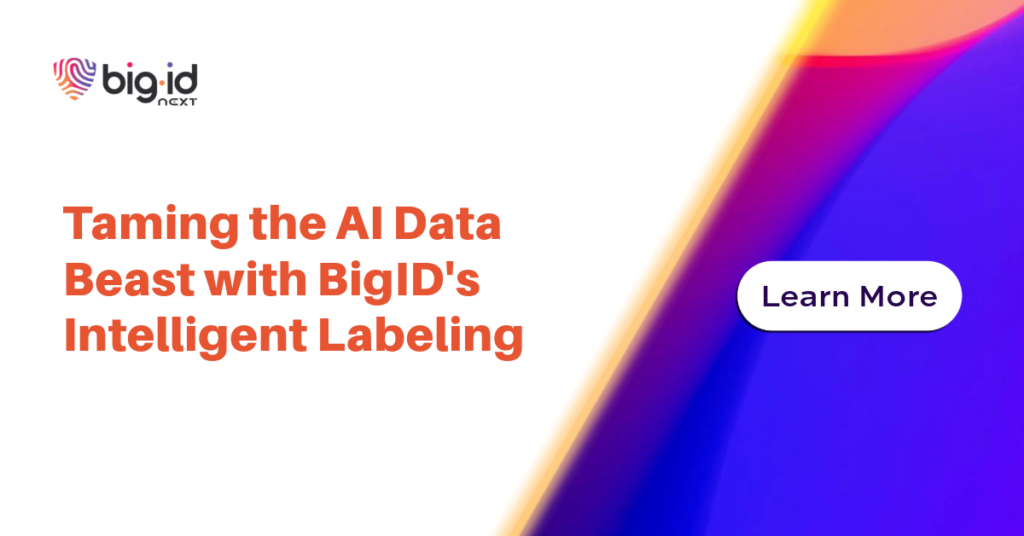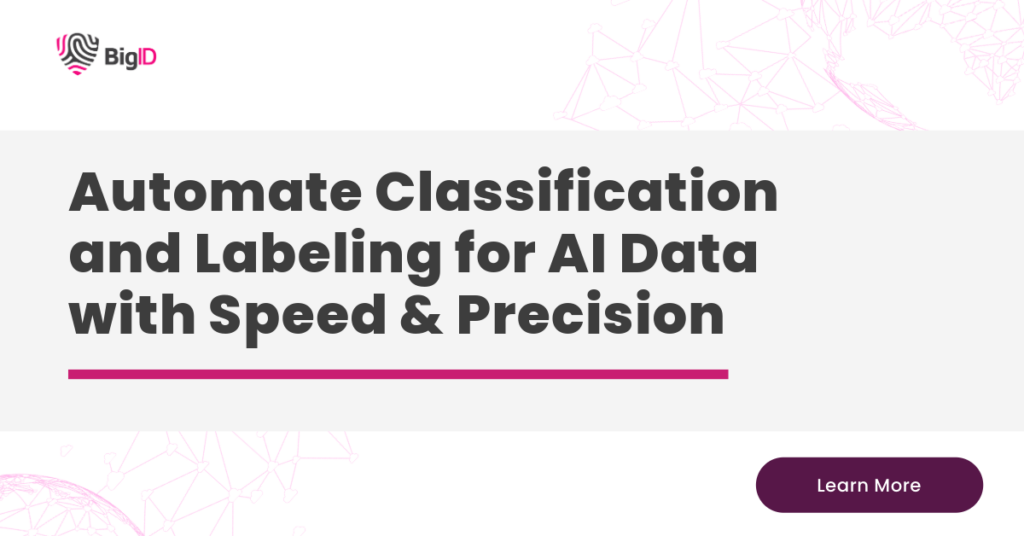Let’s face it, the world is buzzing with Artificial Intelligence — from the groundbreaking research to the smarter business processes, AI is rapidly becoming part of the organizations’ day to day. This is an exciting wave of innovation but brings its own set of challenges, more precisely when it comes to data management where teams are generating and storing vast amounts of AI related information like datasets, models, code, research notes and validation results often dispersed across cloud collaboration platforms like Google Drive or OneDrive.
Sticking with Google Drive, this file sharing platform offers incredible flexibility but managing the sheer volume and sensitivity of data can quickly feel like trying to organize chaos. How do we ensure that our valuable AI intellectual property or sensitive training data isn’t accidentally exposed and how do we apply consistent governance? This is where the power of intelligent data discovery and labeling comes into play, and BigID appears in the spotlight, by providing much-needed clarity and control.
How Smart Labeling Brings Order and Security
Imagine a typical scenario in a forward-thinking company deeply investing in AI development. Multiple teams are working on different projects, utilizing Google Drive as their central hub for collaboration. You have data scientists storing large training datasets, potentially containing anonymized or even pseudonymized customer information, machine learning engineers saving Python scripts filled with proprietary algorithms and model configuration files and researchers drafting papers and storing experimental results. This data represents significant investment and competitive advantage.
Yet, without a clear system, it’s just a collection of files and identifying which documents contain sensitive AI model parameters versus general project notes, or differentiating between raw training data and publicly shareable research summaries, becomes a Herculean task if left to manual effort. This lack of visibility isn’t just inefficient, it’s a security incident waiting to happen. An improperly shared file.
BigID’s Approach to Data Visibility
This is precisely the kind of challenge that BigID is designed to address, particularly with its sophisticated labeling capabilities. It’s not just about finding data, it’s about understanding it and acting upon that, in an automated and scalable way. The process begins with BigID connecting securely to your Google Drive environment and from there, after running a full scan with the proper classifier attached, check your Data Catalog and you will see that it doesn’t just contain file names or types, but it deep dives into the content itself and even provides a fast preview capability without opening the file. BigID employs a range of techniques, including pattern matching, keyword analysis, and even its own machine learning classifiers, to accurately identify files related to AI development. It can be configured to recognize specific programming language syntax common in AI (like Python imports for TensorFlow or PyTorch), spot keywords like “neural network”, “training data”, “model weights”, or even identify files associated with specific internal AI project codenames. It is worth saying that imagination is the limit.
Once BigID discovers and classifies this AI related content according to query based policies you define, the magic of automated labeling happens. Based on the classification results, perhaps identifying a file as “Confidential AI Algorithm” or “Sensitive Training Data – GDPR Relevant”, BigID automatically applies corresponding labels directly within Google Drive. These can be native Google Drive labels, which seamlessly integrate with Google’s own data governance features, or custom metadata tags managed by BigID.
Think about the power of instead of relying on every single manual tag, which is a process prone to inconsistency and human error, BigID enforces your data handling policies automatically and consistently across your entire Google Drive landscape. A new research paper draft saved? It gets scanned and labeled. A modified script containing a new algorithm? Scanned and labeled. This simple automation flow is the key that makes data governance feasible at scale.
Benefits of Scaled Labeling
The benefits extend far beyond simple organization. These labels become actionable intelligence for enhancing your cloud security posture. When files are accurately labeled based on their content and sensitivity, you can implement much more granular and effective security controls. For example, Google Workspace’s DLP (Data Loss Prevention) can be configured to create reports and take actions depending on the attached label. This labeling acts as the foundation to enforce the least privilege access, the accidental data leakage, and helps demonstrate compliance with regulations like GDPR or CCPA. Knowing exactly where your critical AI assets reside and having them appropriately tagged allows you to build robust security measures around them, reducing the risk of unauthorized access or exposure, which transforms your Google Drive from a potentially unmanageable data swamp into a governed and secure environment for innovation.
AI continues to reshape our world and to manage the associated data effectively and securely is a complete nightmare. The proliferation of AI related files within collaborative cloud environments like Google Drive asks for tools that can bring order, visibility, and control without impacting productivity. BigID’s ability to automatically discover, classify, and crucially label AI specific data, directly within Google Drive provides a powerful solution. It replaces manual processes with automated policy driven governance, which makes it easier to protect corporate crown jewels. By integrating intelligent labeling into your data management strategy, you not only organize your digital workspace but fundamentally strengthen your overall cloud security posture, allowing your teams to innovate with confidence.
To see how BigID can help kickstart your security initiatives — book a 1:1 demo with our experts today.



